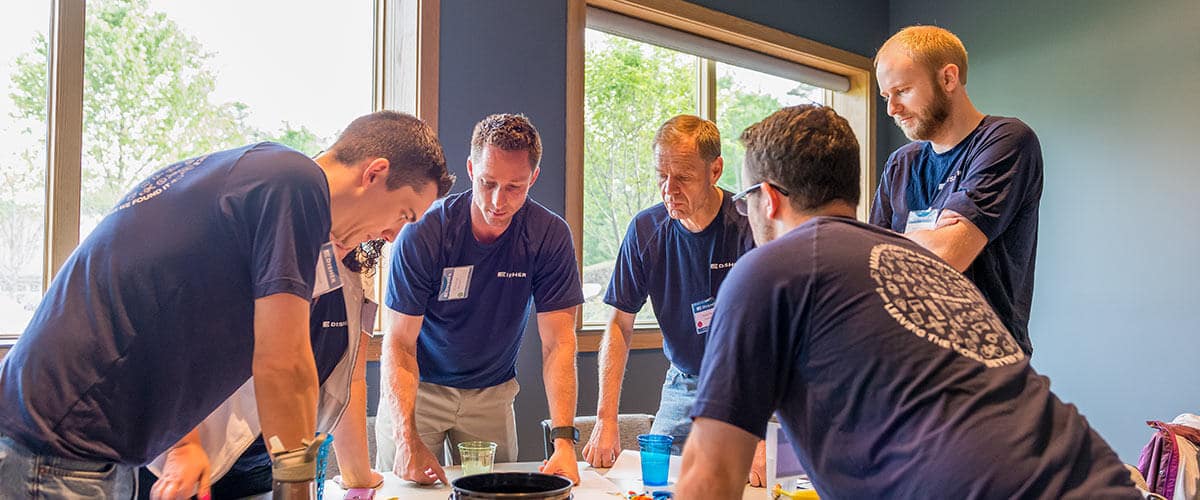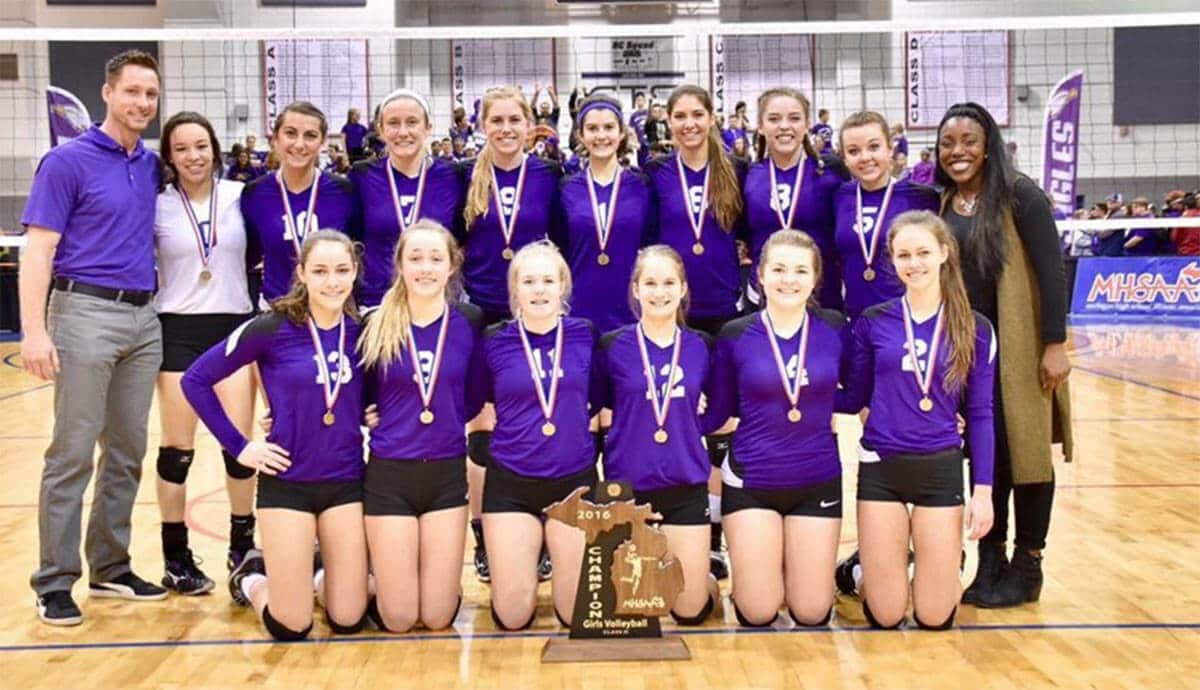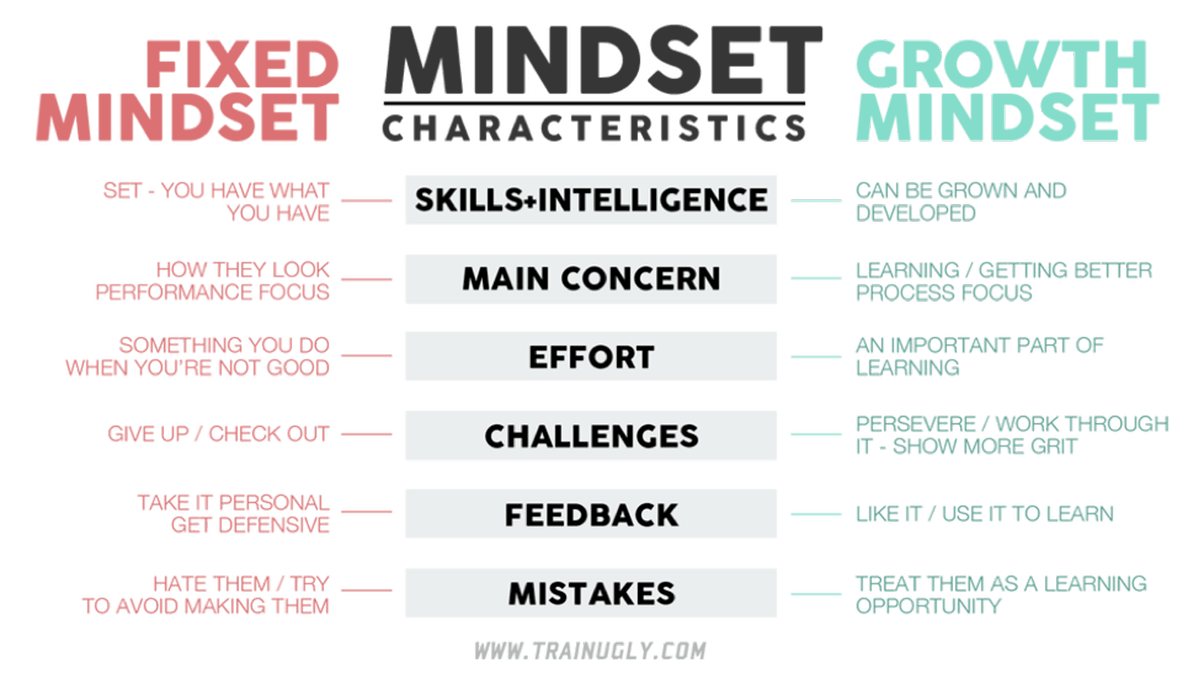Hey, COACH! 5 Coaching Tips to Use as a Manager
September 15, 2017

Written By:
DJ Kellogg | Former Area Lead - Southeast Michigan Region

Helping Your Team Succeed!
I love coaching teams, and I love being part of a team— and learning how to help them perform at a higher level! I’ve had the privilege of coaching a state-championship high school team, national club volleyball teams, and talented teams of professionals at DISHER. I enjoy each coaching opportunity immensely. While I do not claim to be an expert, I do hope that what I’ve learned along the way will benefit you in some small way. What makes a team perform better? Below are five tips to leading and developing an amazing team.
5 COACHING TIPS
TIP 1: Know Why Your Team Exists
In business it’s referred to as a mission, but your why can be ineffective if it’s shallow or rarely communicated. In his Ted Talk titled “Start with Why” (Start with why — how great leaders inspire action | Simon Sinek | TEDxPugetSound), Simon Sinek states that the mission is not to make a profit (or to win if I translate into sports) but something much larger. It’s what you believe. It’s why you exist as a company or a team. As a coach, your why should drive your team’s activities and decisions in such a way that anything that does not line up with your purpose shouldn’t be done. People don’t buy what you do, they buy why you do it.
I coach a high school volleyball team, Plymouth Christian Academy in Canton, Michigan. We won the state championship title last year in class D. Oddly enough, our mission was not to win the title. We discussed it briefly at the beginning of the season as something that was possible. But our why was much bigger than winning a championship — yet winning ultimately became a byproduct. Our overarching why was to glorify God. One way of doing that was to better the ball which I will describe more fully in the following tip.
TIP 2: Create A Sense of Community
I’ve heard it said that people don’t care how much you know until they know how much you care. In a recent DISHER company-wide offsite meeting, we brought in a speaker to discuss how he created community in his organization. Their definition of community is: “Where care, challenge, and celebration are experienced within a commonly pursued purpose.” As a coach, I love this definition for a few reasons. First, it includes purpose… the why. Second, it echoes the motto my volleyball team used to win a state championship: better the ball.
In volleyball, better the ball reminds the team where, if the player that contacted the ball prior to you gave you something less than perfect, then do something to make it better for the next player. We also applied this concept to our interactions with each other. A great coach and team will focus on interactions that better the other person. Whether it’s in a meeting, a team-member review, in practice or a match, we need to regard others more highly than ourselves. We should have the freedom to challenge each other. But without the care, there is no assumption of good intent in the challenge. Lastly, the word celebration stood out to me. You must have fun! What a great way to view community.
TIP 3: Promote a Growth Mindset
In order to improve, a coach needs to cultivate a growth mindset rather than a fixed mindset with the team. From the website www.trainugly.com: “People with a fixed mindset believe that their skills and intelligence are set and you either have them, or you don’t. They don’t really believe in their ability to learn and improve at things. People with a growth mindset do. They believe that skills and intelligence are grown and developed. When someone with a fixed mindset sees a talented performer, they think: ‘wow that person is really great – she is so lucky to be so talented!’ When someone with a growth mindset sees a talented performer, they think: ‘Wow that person is really great – she must have worked really hard to get that good!’ ”
Once team members have adapted the growth mindset— how do they apply it? Coaches need to encourage their team to be willing to push themselves and make mistakes in order to learn! If your team is not uncomfortable and making mistakes, then they are not on the edge of their ability. It requires solid leadership and a team culture that doesn’t view mistakes as bad. It’s hard to do this if you’re bound by normal measurements of success such as making a profit or winning the match or game.
Let’s go back to my volleyball team for a moment. As I mentioned earlier, we stopped discussing a state championship as a goal early in the season. Instead, we believed that if we were in the habit of always asking ourselves, “What can we do better?”, as a team and as individuals— we would experience success. We did not use winning as the measurement of success. John Wooden, one of the greatest coaches in history, said it best, “Never mention winning. My idea is that you can lose when you outscore somebody in a game, and you can win when you’re outscored.” Looking back, it took the pressure off. It allowed us to challenge ourselves against much better teams and not feel disheartened when we lost— and that we did. We were not concerned about losing the match or what our team’s win-loss record was. Winston Churchill was believed to have said, “Success is the ability to go from one failure to another with no loss of enthusiasm.” That philosophy allowed our team to be successful in terms of growth measurement but also through one of the byproducts – a state championship.
TIP 4: Be a Creative Problem Solver
Look at each individual you coach and the challenges you face as a team as a puzzle to be solved. I recently spoke with Kevin Hambly, the former head volleyball coach at Illinois who just took over as the new head coach at Stanford, the reigning NCAA Division I national champs. I asked him about the transition and what pressure he might be feeling. How would he create the team’s culture and sense of community? His response was that he viewed each team as a puzzle to be solved. I appreciated the analogy in that there are many ways to solve a puzzle like a Rubik’s cube. Look at the strengths and weaknesses of your team and find creative ways to meet the challenges you face by utilizing and strengthening the skills of each member.
TIP 5: Nurture the Ability to Anticipate
One of the most important skills in sports and in business is the ability to anticipate. In volleyball, it’s a difficult-to-train skill that helps players be in the right spot at the right time. These players are able to see the play develop before it happens. They make it look much easier than it is. This ability comes through experience and proper training, and it is valuable with all types of teams. In a work setting, coaching your team to be proactive verses reactive will keep you way ahead of the competition. It’s a versatile skill that will help your team anticipate a variety of things like: a customer’s needs, the potential risks on a project, when a project is getting off track, what characteristics to look for in hiring a team member, and so forth.
How does a coach teach anticipation? There are two methods of learning: extrinsically and intrinsically. Extrinsic learning is having someone tell you what to do. You learn for a specific task, project, drill, or practice. Extrinsic is difficult to retain when it matters most because it’s hard to apply to other situations. Intrinsic learning comes through personal experience. It takes a large amount of time but retention and application is much higher. Somewhere in the middle is what is known as guided discovery which is what a good coach will use to nurture anticipation. It’s putting the team in a variety of positions to learn for themselves while the coach asks the right questions to allow the team to process on their own. This provides a right blend of speed and retention. It requires intentional effort by the coach, but the long-term payoff is worth it.
To summarize, there are many ways to coach your team towards higher performance. Through coaching with a strong purpose, a caring community, a growth mindset, creative problem solving, and anticipation— your team can be even more successful. Let me know if and when you incorporate any one of these tips with your work team, sports team, or maybe your family team. If you have a helpful tip, please share it. Now go and better that ball!
Written By: DJ Kellogg, Area Lead – Southeast Michigan Region
DJ has a BSME from GMI Engineering & Management Institute and is a certified PMP (Project Management Professional) with more than 23 years in automotive safety experience prior to joining the DISHER team. He is active with family, church, sports and coaching volleyball.




